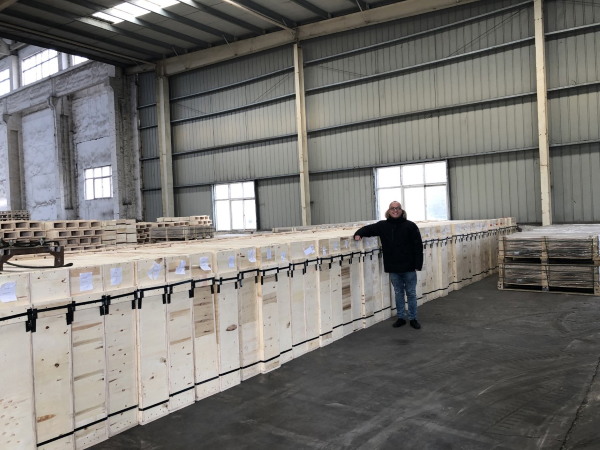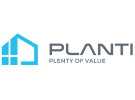Since September, the price of horticultural glass has changed dramatically. “The glass price has been almost stable for ten years, it only drops a little bit year after year. Yet a couple of months ago, the price almost doubled,” says Michael Lee with Planti. “It’s bad news for everybody, not in the least for growers and builders.” Cause for the price change is the high demand for low-iron glass from the solar industry.
Low-iron glass is a type of glass with – the name might give it away – very low amounts of iron, meaning that it is much clearer than glass with a high iron rate. This type of glass is highly in demand for greenhouses and is also being used in the solar industry. “This summer the solar business in China developed a lot. It’s a very volatile market usually, but since this summer it has been a strong market, meaning that solar manufacturers are buying a lot of glass for their future business. Many factories like ours, have seen orders from solar panel buyers. The demand for the raw goods is high, and so is the pressure on the factories,” Michael explains. Planii solely serves the horticultural market and does not focus on the solar business. “But since solar panels come in a fixed size and are much easier and quicker to produce, suppliers can make more profit by delivering glass for them, instead of growers. There’s a big shortage of glass in the market.”

The higher price has an effect on greenhouse builders and on growers, depending on whether the price is enclosed in their services or whether they made a fixed price. “Then also we used to deliver glass within a month when we had an order, but due to the pressure on the market the delivery time is higher now: two months or even more.” And it’s not the end of the story. Also the price for shipping has increased. “Shipping costs from China to Ontario have been stable for many years, yet on top of everything also these costs are higher than before. With a 50% increase, it’s a big issue with great effect on the project prices.”
It’s another unexpected trend that Planti, a relatively young company, is dealing with. Starting in 2017 with HPS and LED lights and expanding rapidly in horticultural glass, the company has seen fast growth. Although they started with the lights as their core business, the horticultural glass now is the majority of the business. “Although last year we delivered more than 10,000 sets of HPS lights in Middle Asia – another reason for the growth we’re enduring,” Michael says. “Yet the demand for horticultural glass rises even faster.”
“We see that diffused glass is being used on every market. Before mainly America and Europe opted for it, nowadays we also send it to Saudi Arabia. Growers all over the world are buying diffused glass instead of clear glass. Then also more growers opt for high haze instead of low haze,” Michael says.

In Europe most growers buy medium haze, but in the rest of the world they go for 70% haze, which is a high haze. “Once they’ve made up their mind about the benefits of diffused glass, they want the high diffusion and the higher the haze, the more the light is diffused. This is good for the crops, for the plants to grow in a uniform way – both in flowers and vegetables.”
2020 has of course been challenging for the company as well – both in terms of production and in terms of logistics, yet fortunately the delays caused by COVID were overcome over the summer. In order to help more growers, the company has decided to keep their focus solely on the horticultural industry, not supplying glass to the solar business. “It’s a stable business. Of course this market provides challenges, but that’s why we work hard – to deal with these challenges”, Michael says. “We’re working hard to develop the market and believe this is possible, since we have more orders every year.” Yet despite their dedication to the greenhouse industry, they are still dealing with the higher prices for raw materials and pressure on the market. “Horticultural glass is difficult to make, whereas solar glass is easier since it’s a fixed size. Robots can be used to produce glass for the solar panels, so nowadays many glass factories are expanding their production. It will take two to three months to start a new line and another two before it runs smoothly, meaning that the prices will stay high until summer next year.”
For more information: Planti
Planti
info@plantiinc.com
www.plantiinc.com
